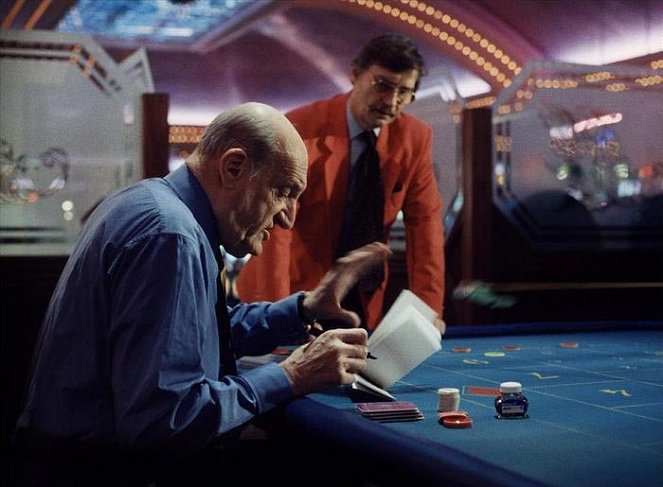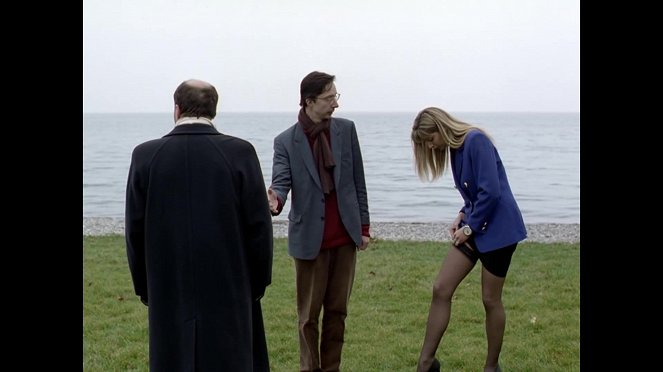Regie:
Jean-Luc GodardDrehbuch:
Jean-Luc GodardBesetzung:
Ghalia Lacroix, Harry Cleven, Yasna Zivanovic, Valeriu Popescu, Stéphanie Lagarde, Frédéric Pierrot, Michel Francini, Sarah Bensoussan (mehr)Inhalte(1)
The "story" is a complex tapestry in four panels, with the character of the Director linking the sections. A film is planned but is stymied by casting problems; a play is produced in Sarajevo, but the actors are swept away by war; the Director is frustrated in completing the film that initially couldn't get off the ground; and the magnificence of Mozart puts a period to Godard's wandering--but never adrift--drama. Woven into the fabric of FOR EVER MOZART are examinations of the tools humankind uses to craft truth and beauty out of chaos: art, politics, movies, every kind of "framed" image of ourselves and our experiences. – Film Society of Lincoln Center (Cohen Media Group)
(mehr)Videos (1)
Kritiken (1)
A very "plot-driven" (and therefore more accessible to the majority of viewers) film by Godard. Formal techniques are not (unfortunately) utilized as an additional layer of meaning, but rather as a stylistic element - primarily the traditional disjunction of sound and image (an interesting aspect is the absence of classic intertitles). The contrast between the use of classical or classicist (beautiful/kitschy - according to each comrade's taste) beauty in Mozart's music and shots of the seaside, and the horrors of the Yugoslav war, is not as groundbreaking as one might expect. A similar, yet more interesting, juxtaposition can be seen on the content level, where several plot lines intertwine with reflections on the function of art. And art fails in the face of tanks and consumerist viewers, in the hands of the young and the old. Here, as is latent throughout the entire film, a certain painful nostalgia and pessimism are most strongly felt - the young die radically and bravely, but unnecessarily, unable to create anything truly new (in fact, they only reproduce de Musset and Camus), while the elderly director continues to create but cannot reach the superficial external world, which watches the new Terminator in theaters against the backdrop of artillery shells. I am not sure if it's just a correlation or a real causality, but the director's films, in which the aging, unsuccessful, and mocked director is played by Godard himself, playing himself through his own eyes, are better than this one, where he allowed himself to be replaced by an actor.
()
Galerie (14)
Photo © Gaumont


